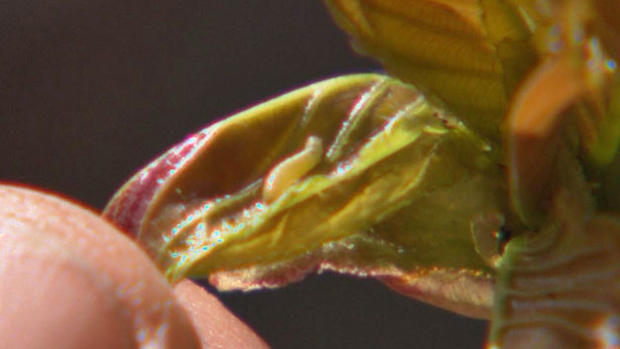Leaf-Eating Insects Wreaking Havoc At Lynn Cemetery
LYNN (CBS) - It's a battle against the bugs, tiny leaf eating insects that can devastate trees, some that are 100 years old.
One of the battlegrounds is a beautiful cemetery in Lynn that was created in the mid-1800's. And it's D-Day in the fight to stem the tide of the damage.
"As you can see here, this tree is in a state of decline," says Jason Dumas the Tree Warden in Lynn, showing us a hemlock with dead branches and struggling, new growth.
One of his jobs is to protect the city's Pine Grove Cemetery, more than 200 acres of final resting places and a beautiful oasis in a busy town.
"It's a huge deal. You're talking about trees that are 100 years old. You just don't see that anymore," he says.
One of the culprits is the tiny winter moth caterpillar. Another is the Hemlock Wooly Adelgid. The insects love nothing more than to devour the fresh, new foliage.
"If enough of the leaf is eaten, the leaf dies. If that goes along the entire branch, the branch will die. Too many branches die, the tree dies itself," Dumas explains.
And there are some 5,000 trees in the cemetery, many crawling with the bugs. On a small tree there can be 5,000 caterpillars on one tree, and on a large tree, of course even more.
"You're talking about 50,000 caterpillars feeding on the tree," Dumas says.
But they're fighting back this year by spraying a horticultural mineral oil, and a naturally occurring bacteria that can kill the insects without hurting anything else.
"We choose those because they're most environmentally friendly. Hopefully the spraying and the work we put into it will really help out the cemetery and the trees, and we'll preserve what we have here," says Dumas.
A third insect, a cankerworm will soon join in the leafy feast, so they'll use the sprays again to try and stop that one as well.




